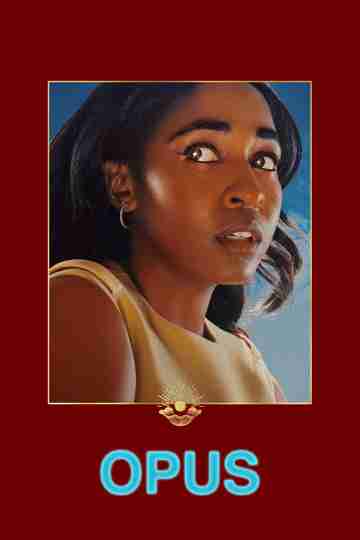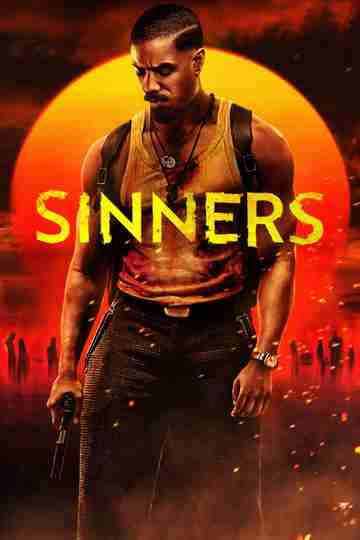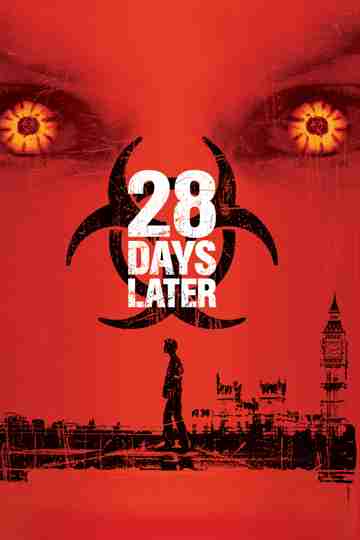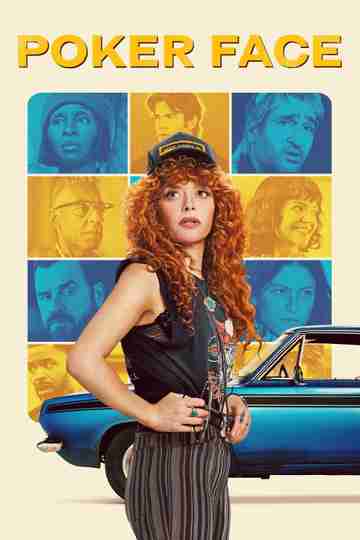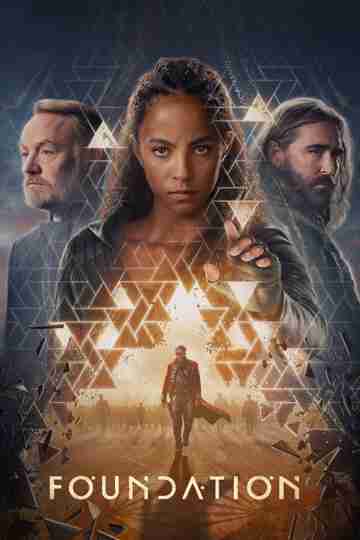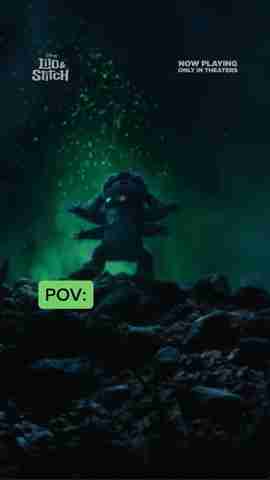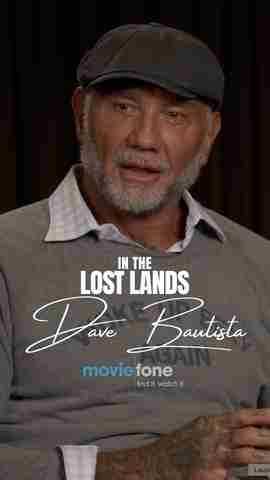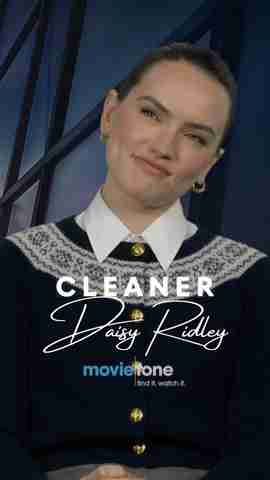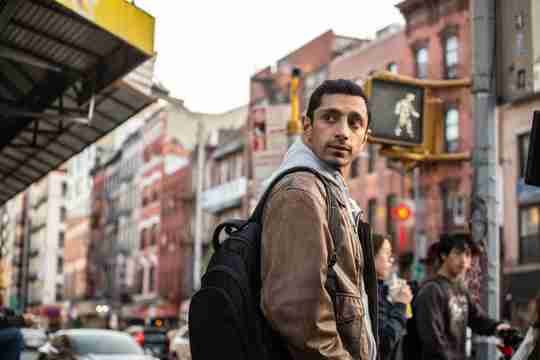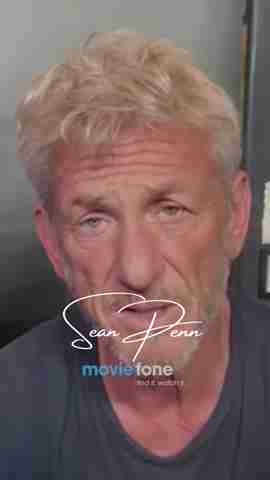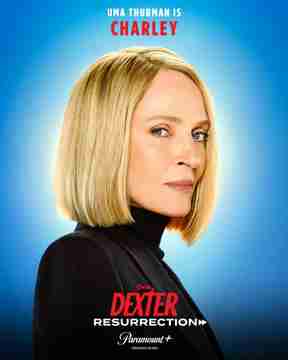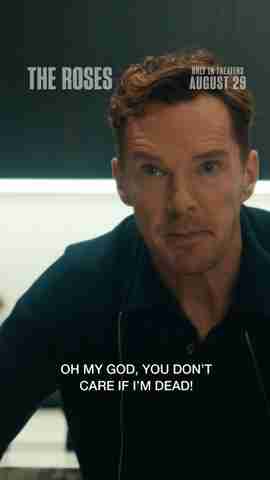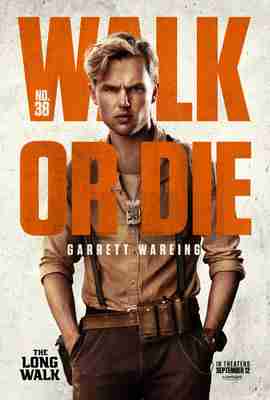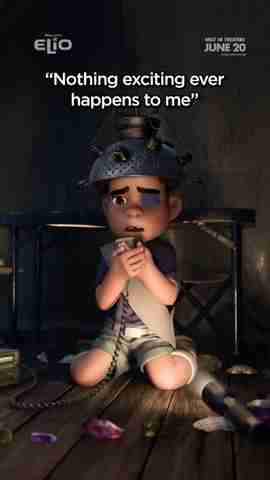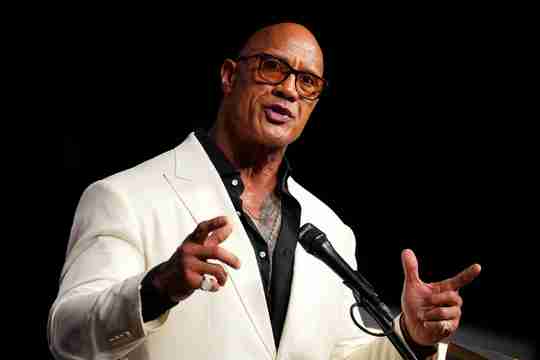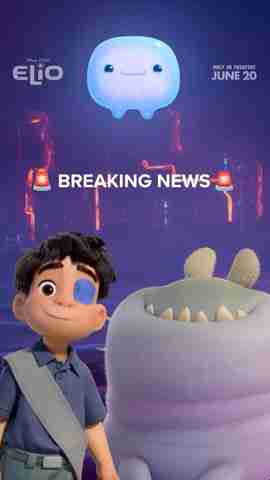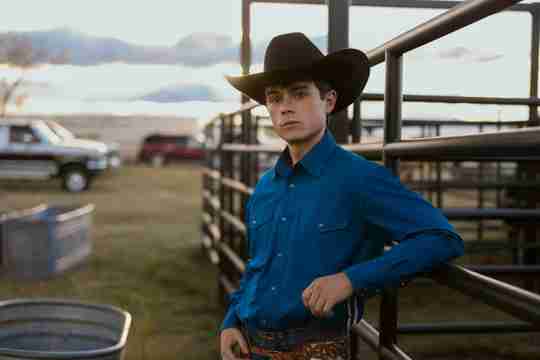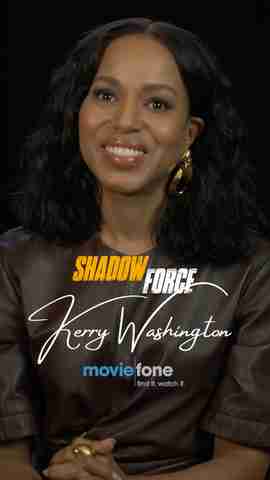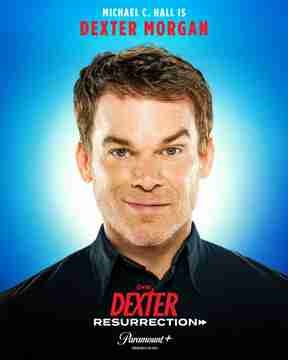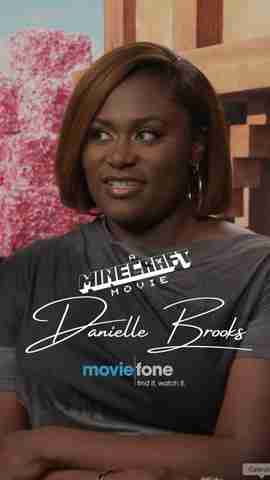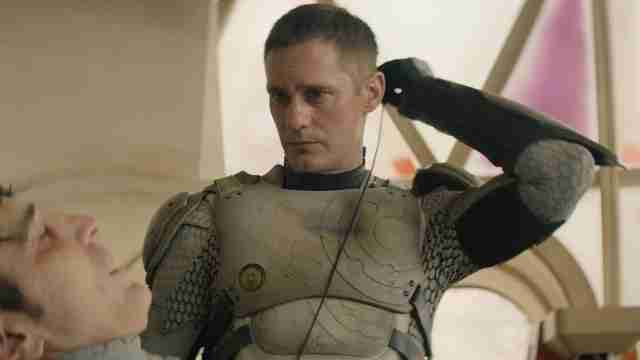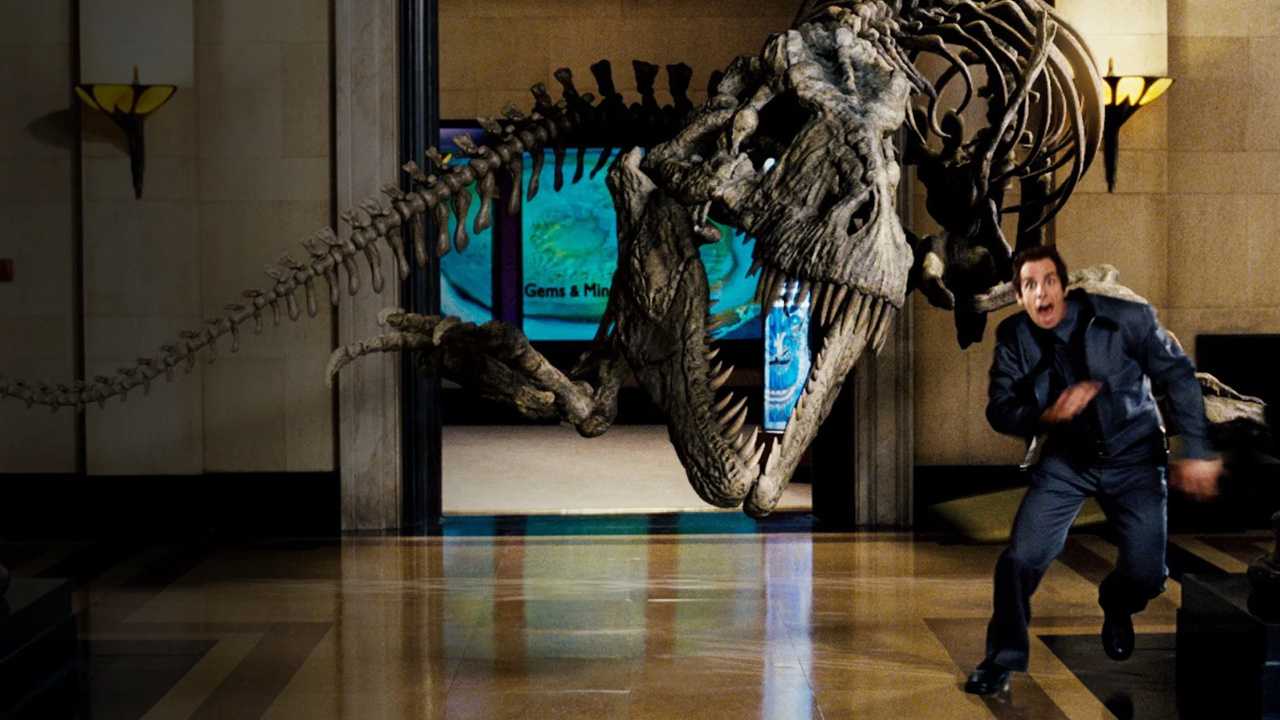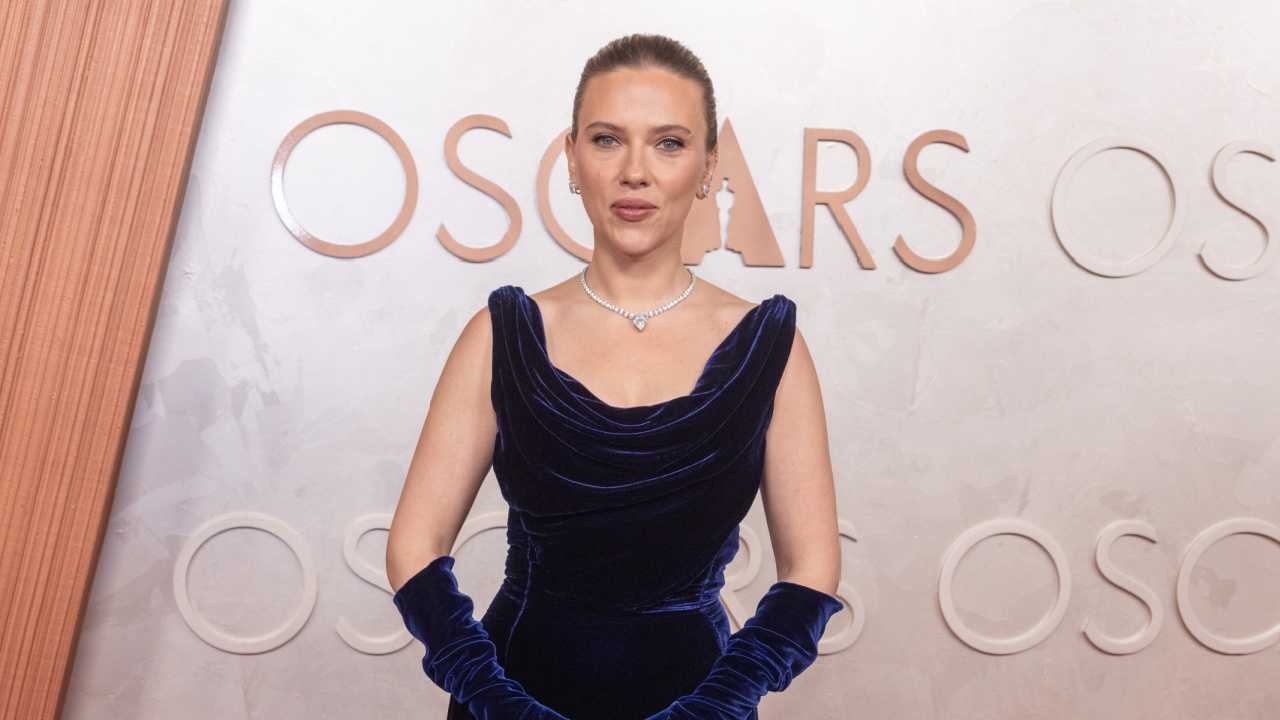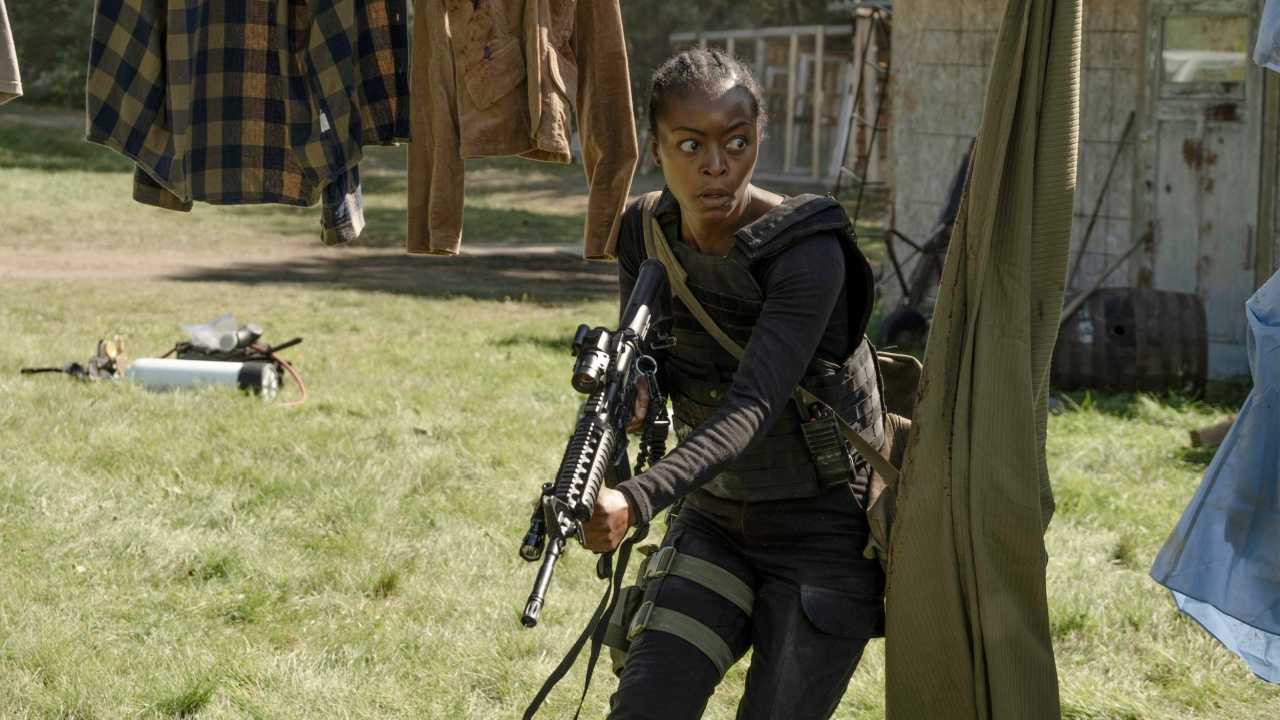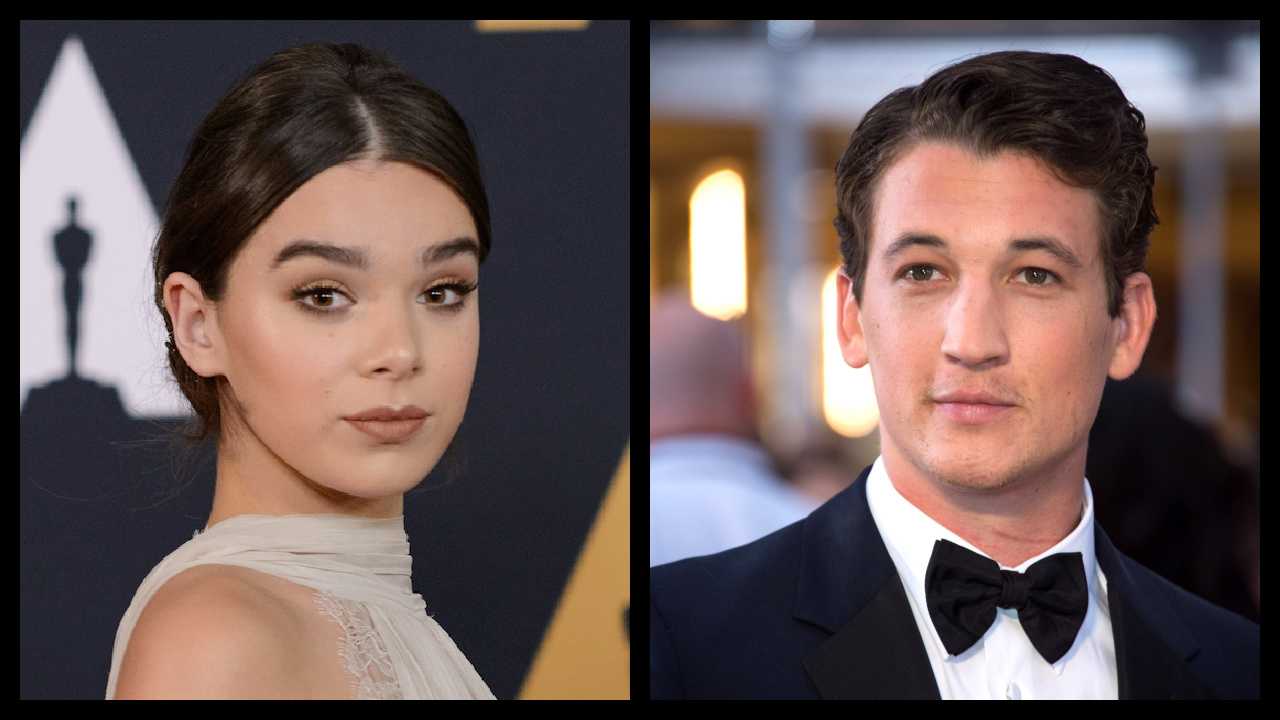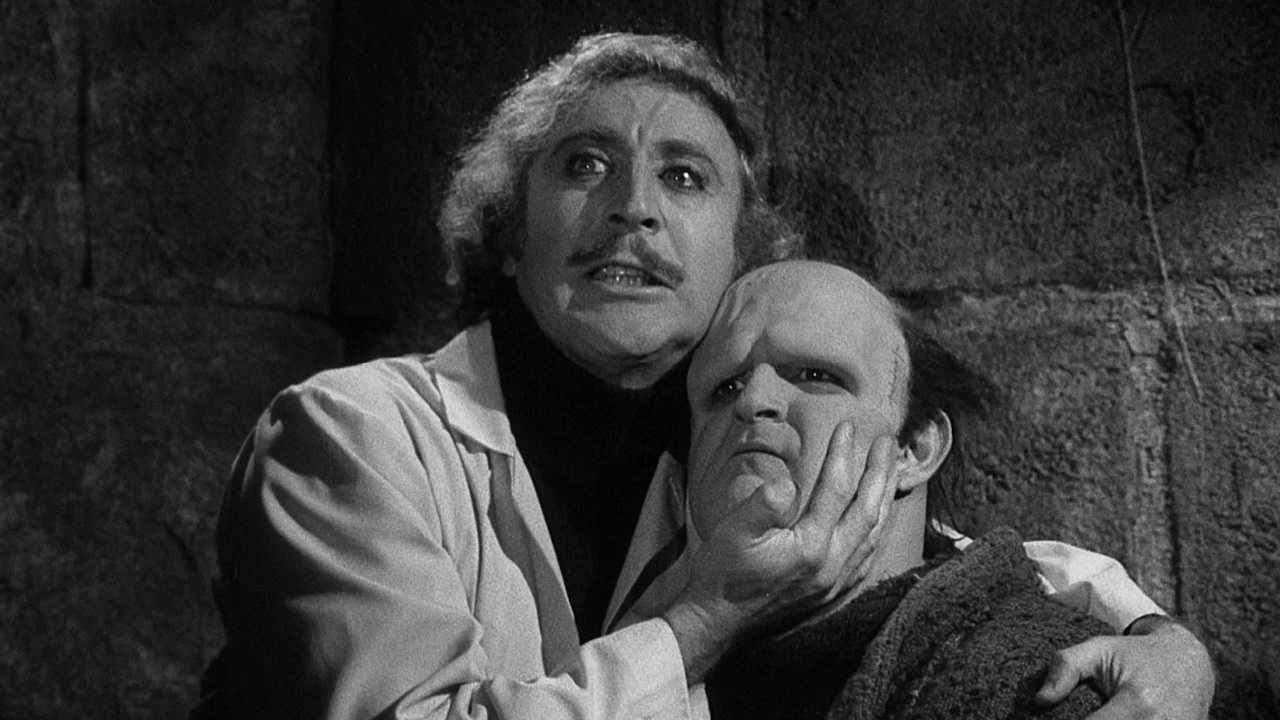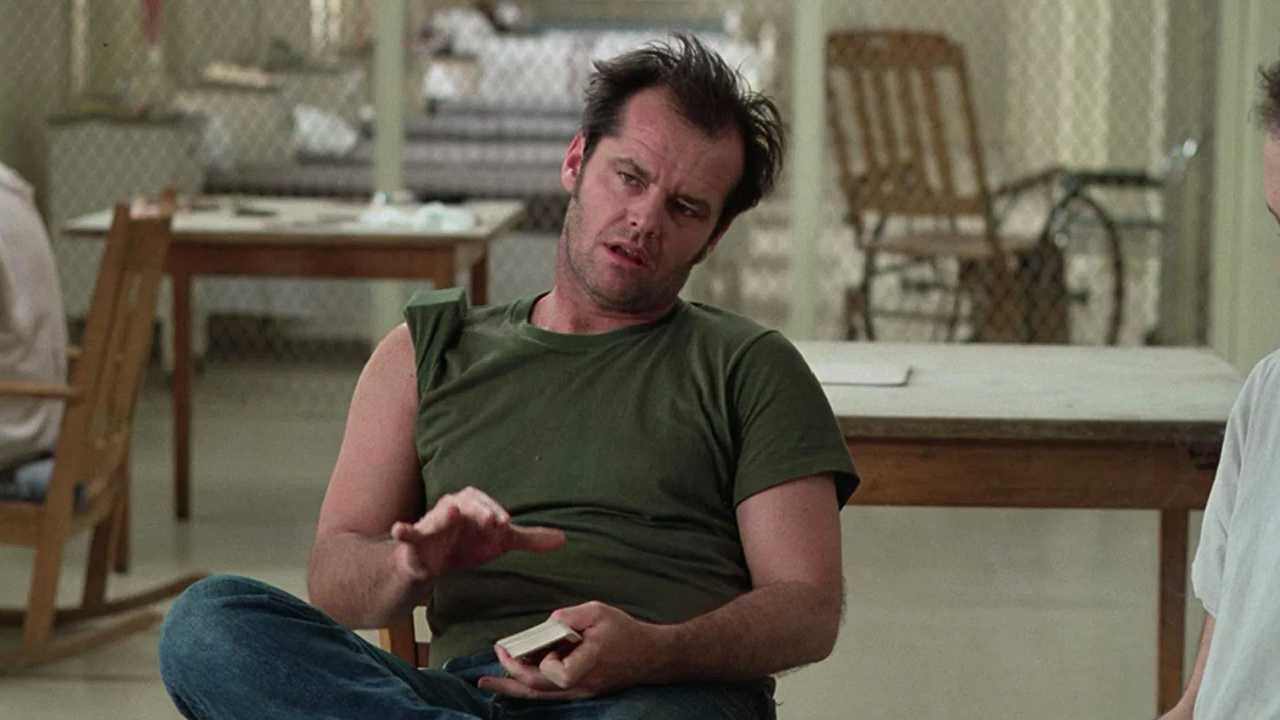The cast of ‘Doogie Kameāloha, M.D.’ discusses their new series
The cast and the show’s creator talk about the differences in the new show, and what it’s like shooting in Hawaii.
‘Doogie Kameāloha, M.D.’ is a new series on Disney+, and as the name suggests, it’s inspired by the ABC TV series ‘Doogie Hauser, M.D.’ that premiered in 1989. This time around, “Doogie” is the nickname for Lahela Kameāloha 16-year-old medical school graduate who works at a hospital in Hawaii. The cast and the creator of the show recently talked to us about the production.
First, Payton Elizabeth Lee talks about playing the lead role.
Moviefone: Peyton, were you familiar with Doogie Howser, M.D.?
Peyton Elizabeth Lee: I was not. Doogie Howser was on quite a while before I was born, so I was not personally familiar with the show until I got the audition and my parents were super excited about it, and then I had to start watching.
MF: So, I love that the re-boot of Doogie Howser, M.D., Doogie Kamealoha, M.D., features a woman, a girl, and I love the strong female empowerment of this series. So, talk to me a little bit about your character and her relationships, her relationship with her mother in particular.
Lee: Yeah, so I played Lahela who is a 16-year-old doctor, and the show follows her on her journey of self-discovery through these two worlds that she sort of has one foot in each of... You know, she's a teenager, and so, she has those very universal teenage experiences of liking a boy and having issues with her best friend and going to school dances, and the firsts that come with growing up. And on the other hand, she is a medical professional, so she exists as a doctor in a hospital with coworkers and bosses.
And so, it was so fun to develop her character and play her because there are so many nuances to who she is and to the different relationships she has. She has this very special relationship with her mom that was a joy to work with Kathleen to sort of hone in on and really put together because Lahela's mom is also her boss in the hospital, and so, she and her mom sort of have to navigate when they're coworkers and when their family, and when Lahela's mom is her mom and when she's her boss. And so, that dynamic is difficult for them to sort of navigate and balance, but it brings them closer together in the end.
She has a great relationship with her father, who is sort of the caretaker of the family. He is always trying to make sure that she's happy and healthy and knows that even though she's this teenage prodigy, she's still a little girl, and it's okay to make little girl mistakes and that he loves her just the same. So, there are so many fun dynamics and relationships with each of the different characters in the show, and as the series sort of continues, you get to really see those relationships develop.
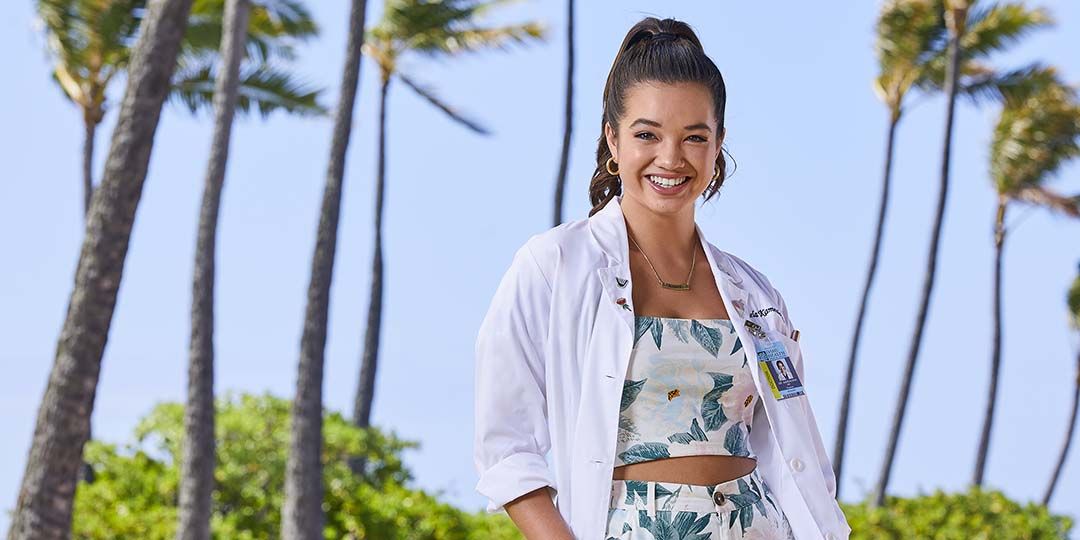
Peyton Elizabeth Lee as Lahela "Doogie" Kameāloha
MF: I can't help wondering, you've been an actress from a very young age, so I'm wondering if there is some understanding of Lahela for you because sort of, it was the same thing. You went to work as a young child, and you had to be like an adult at work, yet you were still a child.
Lee: Yeah. I mean, definitely. I think one of the things that I brought to building the character of Lahela is my personal experience growing up, like you said. I mean, I'm not a doctor, but I am an actor, and so, I know what it's like to be a young person in a professional environment dominated by adults where you're given adult responsibilities, and you have these adult expectations placed on you and how to navigate that and still allow yourself to be a kid while being successful in an adult's world.
MF: Some serious stuff we've been talking about, tell me about how fun it is, though, to shoot in Hawaii.
Lee: Shooting in Hawaii was incredible. It's obviously so beautiful there and there's this incredible, rich culture that being there for the length of time that we were there, I really got to immerse myself in and learn from the locals that were in our cast and crew. But yeah, being in Hawaii added so much to my experience personally shooting there, I think it adds so much to the production value of the show and to the authenticity of the show, the landscapes in Hawaii really ground the show, I think, in a lot of ways and sort of centered us and brought us all together.
Kathleen Rose Perkins and Jason Scott Lee talk about playing Lahela’s parents.
Moviefone: Oh, my gosh, you guys, this is so fun. I love the series. How excited were you when you knew that they were rebooting Doogie Howser, MD? We can start with you, Kathleen.
Kathleen Rose Perkins: Very, very excited because I watched it when I was a kid. When I was a baby, baby. It was a cool show growing up to watch. Really great concept, the idea of putting a teenager in that kind of setting and in a hospital as a doctor who's a genius, who's also trying to deal with teenage angst and issues, and then, when the reboot or reimagination, came along with Doogie Kamealoha, MD, the idea that it's a young woman, and she's mixed race, and she lives in Hawaii. That's such a cool way of reimagining Doogie Howser, MD, and so, I was really, really anxious and excited to be a part of something like that.
MF: And how about for you, Jason, and coming on board to play Doogie's dad?
Jason Scott Lee: You know, it was such a breath of fresh air because I never had an opportunity to really play a local guy in a fun environment and kind of a fun atmosphere and kind of a family man kind of situation, so it was all very new and very exciting. And to have that Hawaiian last name after Doogie, that kind of said it all, and then when they said they wanted to make it a premiere quality show and actually shoot it in Hawaii. It's like, "Wow." I was like, "This is my backyard, and I thought, "Wow, this is perfect." It's the perfect timing, and I think, at the time when they were projecting the idea, the COVID numbers here were low, and it was such a kind of hotspot to be in a place where the numbers were limited, and they could be outdoors. You could shoot almost everything outdoors or with open windows and doors, so there were so many pluses and not only that, that the place is picturesque, and the lighting here is so technicolor, it just jumps off the screen.
MF: Absolutely. So, you're right, we're used to seeing you, and that's what hit me as I watched you. We're used to seeing you in these really tough, kind of superhero-y, action-y roles, and here... Explain to me what your character Benny is like, because he's very different from all your characters, and what his relationship is like with Lahela.
Lee: Well, I think with this, we kind of just unleashed him, and it became this aloha-spirited, fun, chilled out, laid back kind of guy who's had a life of the rat race and realized that that wasn't the key to being with the family and affording all the time together. And so, he chose the career of making shave ice, ice snow cones and selling flowers, and I think that those two dynamics create such a colorful, giving, open-hearted kind of business that I think it's a nice stabilizer for the show and for the ohana, for the family.
MF: So, Kathleen, Dr. Clara Hannon, Ben's wife, has a little bit more stress in her life. She didn't decide to run a shave cone truck, so who is she? What does she do? And what is her relationship as the mother to Doogie?
Perkins: Clara is pretty career-driven, real type A. She's a doer, as opposed to a just sitter. She likes to do. I think that she and Lahela are very similar, so they end up butting heads often, and yet they also really love and support one another, and they should. Otherwise, it would be really hard because they're mother/daughter, but they're also colleagues at work, boss and employee. So, we have to kind of be together at all times throughout the day, so it's an intense relationship to say the least.
MF: And I think that balance is kind of hard because she's not an adult. She's still a teenager, so although she's got all this responsibility as a doctor, very important responsibility, there are things that, as a mother, Clara doesn't want her to do.
Perkins: Yeah, but I have to treat her like an adult at work. It's really, really hard, and they really struggle with figuring out who am I to you right now? Am I your mother? Am I your colleague? How do we relate to each other right now in this situation? So, I find that fascinating, and I think that was one of the reasons why I really wanted to be a part of this is because this relationship between two women, different age group women, is really interesting to me. And I think the writers did a really beautiful job in cultivating that relationship.
Co-stars Mapuana Makia and Jeffrey Chapman-Bowyer share how much they enjoy shooting in Hawaii.
Moviefone: What is it like for you, Mapuana, actually being able to be at home shooting?
Mapuana Makia: It's been such a dream come true. Honestly, Carole, you probably feel this a little bit, getting to bring Hollywood and acting and all of my crafts that I've been working on so much in California, and then getting to bring it back home was just such a joy to meld both of the worlds and get to see my family and then get to work. It was actually a little bit of a mind-meld for a little while, until I got used to it, but it was such a joy.
MF: What's it been like for you, Jeffrey, shooting on the islands?
Jeffrey Chapman-Bowyer: It was such a dream coming true. I love Hawaii, I've been several times before, but going for a week on vacation versus being there for four and a half months, working and living was a completely different experience. I loved the people, first and foremost. The locals on the islands were just so welcoming, so excited for us to be there, there's such a sense of community and Ohana. I loved it. And having Maku there to help guide me through as my Hawaiian spirit guide was a blessing.
MF: Did any of the cast or crew take you around the island and take you to any of the local spots?
Chapman-Bowyer: Makahuena. She took me hiking, she took me on a walking ghost tour, she took me to the moat.
Makia: And we also went into the Kapae Mako stones, which was one of my favorite things that we ever did.
MF: It's so funny, cause when I think of Hawaii, I think of food. I was born and raised in Los Angeles, but I ate all the Hawaiian food at home because that's what my mom, my parents, would cook. And then I would visit Hawaii to visit my relatives and I go, oh, that's where like hot dogs and rice came from. Did you ever take him to The Alley or to Shiro's?
Makia: And I didn't think it just Shiro's, but I think we did end up going to CELTA Kakaako. There is the Hawaiian restaurant there that we checked out.
Chapman-Bowyer: So much of the food that we had on set, cause the majority of the crew were local, so our craft service team were local. So I was just saying that I got to try and musubi for the first time. It's a game changer, honey.
Makia: Yep.
MF: I'm glad you like it. So let's talk about the show and your characters. This will be for both of you., we can start with you, Mapuana. Had you watched Doogie Howser, M.D.?
Makia: Oh yeah, absolutely. Growing up. I thought it was the coolest thing that he journaled on a computer, and I always wanted to do that. And he had a best friend that would come through his window, I thought that was so cool. I'd never been to the mainline yet, so I also was just vicariously watching all of these television shows to sort of be like, oh, what the main land was like and things like that. So, yeah, absolutely. Then I watched it again while we were filming, just to sort of compare and contrast our revisioning to the show itself.
MF: And Jeffrey?
Chapman-Bowyer: I loved the show when I was a kid growing up. I've always been a huge Neil Patrick Harris fan, he's an icon in the LGBTQ community. So now for this new generation to have the opportunity to dive into the show that it's so focused on female empowerment and then maybe also go back and revisit the original series, I think it's going to be so empowering for young females to see our new version, and for young queer kids to be able to revisit the original series and see reflections of themselves on television. It's hugely important.
MF: Mapuana, how is Noelani and Charles part of the life of Doogie. The new Doogie, Lahela?
Makia: For Lahela, we are sort of all kinds of things for her. We get to be her sounding boards, we get to be her best friends, we get to be sort of the grownup advisers every once in a while in her love life and her social life. Then we also get to be doctors that learn from her and are fascinated by her and sort of follow her lead in that respect. So it's really interesting and fun that our relationship dynamic goes sort of back and forth in our leadership roles.
MF: And Charles, Jeffrey, has a specific, very light personality. Can you explain him?
Chapman-Bowyer: I think that's just me. It's true. Going into the show, I really didn't know what to expect of Charles, but knowing that he was the one main-lander transplant onto the island, he was very much going to serve as the eyes into the island for the audiences, as I'm learning, and as Charles is learning of the ways of the locals, the audience learns by proxy. He is someone who is obviously quite intelligent, and he's made it through med school, but when it comes to the real world, I think he's quite naive and bright-eyed and very optimistic. And I just loved that levity, he was so much fun to play.
Emma Meisel, Wes Tian, and Matthew Sato describe their characters in the series.
Moviefone: So nice to see you guys. Let's start off. Just explain to me who your characters are.
Emma Meisel: Cool. My character is Steph Denisco. She is Lahela's best friend. They've been best friends since they were super young. She is super bold and charismatic and unapologetically herself. She's bold and both like her personality and her style, like wears really cool accessories and bright colors. She is Lahela's number one cheerleader. She is the most loyal best friend you could ever have.
Wes Tian: My character is Brian Patrick Kamealoha. He is the younger brother to Kai Kamealoha and Lahela Kamealoha. He looks up to both of them and tries to impress people, any chance he gets. He's very adventurous. He loves trying new things.
Matthew Sato: Kai is a super cool, chill, free-spirited surfer. He doesn't really know what he's doing, but he just does what makes him happy. You know what I mean? He's not afraid to do what's not popular. He doesn't really care about what everyone else is doing. It's just him finding his own path and stepping out of his genius, younger sister's shadow.
MF: Do you think he feels a little pressure because Lahela is so excelled, and he's still trying to find his way?
Sato: Yeah. He still doesn't know what he wants to do, and that can be really scary. I think that'll be really relatable for a lot of people that are watching the show because most people don't know what they want to do, you know?
MF: Absolutely. Lahela is an exception. So much has been an exception that she's so young, and she's a doctor, and she's trying to balance being a doctor and still being a teenager. She's 16. Steph, Emma, I feel, helps ground her in that regard, her actual 16-year-old self.
Meisel: Yeah. I mean, she definitely pulls it out of her because life as a teenage doctor can get very stressful, and she can get bogged down by it. So she definitely steps to swoop in and take her on a crazy adventure and remind her she's 16 years old. Steph really helps her navigate those waters, which sometimes can be equally as stressful as being a doctor. Being a teenage girl is pretty tough. She really helps her figure out boys situations and how to just navigate your teenage years.
MF: Wes, did you know anything about Doogie Howser, M.D., before you started shooting this?
Tian: Actually, not really. I mean, my parents had mentioned it before, but once I did get the call back, I started watching the show, and it is so good. I've watched all the way through season one, and I'm in the middle of season two.
MF: Matt, tell us about the parallels between… I mean, it's actually a reboot. It's actually almost exactly the same, except the character has a different sex.
Sato: Yeah, yeah, exactly. It's the foundation of the original show. And then, we just built our own house using that foundation. It's really different than the original show, even though it's based off the same thing. It's a whole new thing. We are comparing it to colors earlier. We painted a new version of Doogie Howser, and we made this Hawaii female led, cultural, diverse, fun coming of age show.
MF: How fun are you having shooting it in Hawaii, your hometown?
Sato: It's been so much fun. It's really cool to film. I never thought I'd be filming a series in Hawaii. I mean, it was a dream come true.
MF: For you, Emma, what's it been like shooting there? Did any of the cast and crew take you around, show you all the local sites?
Meisel: Oh, yeah. Matt was my tour guide. He was all of our tour guide. He showed us so many really cool spots. We all did our own adventuring, but we were all like really together a lot. We went kayaking to some islands, the Mokes, with Jeffrey and Mapuana and Wes. His mom were on the beach. We've gone hiking to waterfalls. It's just been an epic journey.
MF: Wes, what was the most fun that you had in Hawaii?
Tian: I mean, everything because it was also my first time. I'm sure it was everyone or almost everyone's first time to Hawaii. It's so beautiful there. While we were filming on set, we get to travel around, see different places, and get some film there.
Show creator Kourtney Kang talks about what inspired the series.
Moviefone: Tell me how this reboot of Doogie Howser, M.D. came about.
Kourtney Kang: Yes. Well, it came about ... I was always a big fan of the Doogie Howser Show growing up, and I always wanted to do a show about my family. My dad is a Korean guy from Hawaii. My mom is an Irish Catholic lady from upstate Pennsylvania. And when I heard they were rebooting the show ... and I knew they wanted to put an Asian girl at the center of it, at first, I was like, "How are you going to do this? How is it related to the original Doogie?" And then the idea came to me that: what if you did this show in our world? That Doogie Howser is a show from the '90s that this girl knows nothing about. She's like, "That was before I was even born. I don't even know what you're talking about," and you just made it her nickname.
And then I had the thought: what if you set it in Hawaii? And then I got really excited about all the possibilities that that could lead to. It was sort of this perfect storm of it all coming together. For me, it's been really exciting because I grew up watching the show. And I also grew up not seeing a lot of shows, or entertainment, or any with families that looked like mine, or had our sort of backstory or history. And so it's been so wonderful to take this thing that I love from my childhood, and sort of put my own spin on it, and use it as a vehicle to kind of tell my story. We always say at the show that for a Doogie Howser reboot, it's oddly personal. Because then it's not just me. It's the cast and the crew. We've all sort of put our own stamp on it, and we've taken something that was so great to begin with. And we've truly, hopefully, made it our own.
MF: Now, you were born and raised on the islands?
Kang: I was born in Hawaii, and then I moved to a suburb of Philadelphia. That's where I grew up. My mom's an Irish Catholic lady. Had a bunch of brothers and sisters, and she missed her family when she was a young mom. My dad had never lived anywhere other than Hawaii, and I think he was like 36 or 37 at the time ... and moved to Lansdale, Pennsylvania. There was a great picture of him in slippers and shorts looking out the glass window, and there's snow. Like, two feet of snow out the window. It was the first time he had ever seen snow, and he's just like, "Oh my God. Look at this."
MF: You must have relatives in Hawaii still, if your dad grew up there.
Kang: Yes. Yes.
MF: It must be really nice to have the set there, and to be there.
Kang: Yes. My dad has a bunch of family there, and my grandma was always there. So, we'd go back and visit. And so it's been really special to set this here in Hawaii. There's a lot that's borrowed from my real life family. In the pilot, Benny throws and octopus in the washing machine to tenderize it, which is something my uncle John really did. And it was great on set. There were a few folks that who came up to me, and they're like, "You know, I have an uncle who did that," or, "My neighbor did that." It was really a thing. And so it's been really special to go back and to shoot it in Hawaii.
MF: Although I was born in Hollywood, California, my parents were born and raised in Hawaii, and all my relatives are there as well. I really enjoy watching this, because there's so many things like you're mentioning that just resonate with me. Now, I know you have three daughters. Talk to me about now having Doogie be a female rather than a male, and her mother being the director at the hospital.
Kang: Yes.
MF: How important was that to you to show a strong female?
Kang: Yes. It was really exciting to me to put a girl at the center of this. I always say the original Doogie is a coming of age story, and the female version of coming of age is so much more interesting. There's so many more things at play. I was really excited to put a female protagonist at the center of this, and also have mom be the one who is the doctor and who is very career-minded. My group of friends from high school, and college, and even out here ... it's a very career-oriented group who's firing on all cylinders.
I think Gen X moms ... you know, that's what I am, and I think that's what Clara is. There's a certain variety of us. Came of age in the '90s. I really wanted to highlight that. And also, Benny, the dad character, is a lot like my husband and my dad in that there's this great group of generation of Gen X dads who were like, "Yeah, go for it. What can I do to help you? Let's make this happen," which I think is very different than how families were portrayed back when I was growing up.
MF: Absolutely. I love the open title sequence. I know we're almost out of time, but quickly tell me about the open title sequence for Doogie Kamealoha M.D. versus any other M.D.
Kang: Yes. Yes. Well, it's a little bit inspired from the original. And I think what was great about the original is it sort of tells you the story of how this came to be. It fills in the blanks of, 'Oh, this is this child prodigy," with the newspaper articles. And so we wanted to do our version of that and sort of spice it up a little bit. And so while we're doing it, we sort of show the pieces of her room, and what it's like to be a 16-year-old girl today.
One of the fun things of the original show ... Steven Bochco sent the set dressing team to his son Jesse's room, and they took pictures, and that is literally his room is the bedroom of the original Doogie. My 13-year-old daughter, Lahela, who's the same name as the character in the show ... when we were doing this, I asked for her input into designing this room. And I took pictures of ... she has those vines on the wall, and there's the twinkle lights that all the kids are doing. She went on TikTok with research pictures, and I'd send them along to our production design team, and they would incorporate the feel of that in it. And so it was really exciting to sort of ... Jesse is an executive producer on the show. He's directed some episodes. That's one of the neat connections is that the original is based on his room, and this one is very much inspired by my daughter and her room.


